When writing copy for a landing page, especially for a B2B site, do you write in plain language that everyone can understand or do you use technical jargon?
Most common wisdom has said that jargon doesn’t work in copy, but that’s a blanket statement that may not always be true.
There are certain times when jargon is totally appropriate. There are also times (many of them) where jargon is straight up cringy.
Table of contents
What is Jargon and Why Don’t People Like It?
Jargon is defined as, “special words or expressions that are used by a particular profession or group and are difficult for others to understand.”
Then again, the second definition listed is, “a form of language regarded as barbarous, debased, or hybrid.”
The first one seems particularly helpful for communicating with technical groups. The second one seems like a big, fat mistake for copywriters.
Jargon, Cliches, and Buzzwords
As for the second definition, it’s mostly been a qualitative attack on jargon – and it’s been going on for a long time. George Carlin, the iconic comedian, constantly railed against what he called “soft language.”
If you’ve got the time, watch his poetic “Modern Man” routine:
Comedians like Carlin rail against the softening of language, the vague generalities that (mostly) marketers thrust into public discourse. Today, many people poke fun at startup jargon, business jargon, and even conversion optimization jargon.
Basically, jargon is like the cheesy stock photo of the copywriting world. Most of the time, people don’t like jargon because it is bland, vague, and doesn’t mean much…
Instead, it’s nice when a company tells you exactly what they do in plain language (create studio-quality videos in your browser)…
But what’s the actual argument against jargon in terms of copywriting and online sales? Any research done on this?
Though there haven’t been many A/B tests or case studies specifically on jargon, one area of academic research that has been studied well is cognitive fluency, in which jargon plays a role.
Cognitive Fluency and Jargon
You’ve heard it before: clarity trumps persuasion.
If you came upon the following value proposition, how likely is it that you’d understand it right away?
“Revenue-focused marketing automation & sales effectiveness solutions unleash collaboration throughout the revenue cycle”
What does it mean? Can you now explain what they do and how is it useful to you? Not really, right?
Or take two examples of email service providers….which one is easier to understand? This:
Or this:
Probably the second one. The first one is cluttered with buzzwords (‘truly dynamic,’ ‘maximize the performance,’ etc).
That’s not to say the first example isn’t effective – it could be very effective, I don’t know their numbers. That’s just to say that the second example, MailChimp, has much greater cognitive fluency.
Cognitive fluency is defined as the “subjective experience of the ease or difficulty of completing a mental task.” Or to put it more simply, it’s the heuristic that Easy = True. In real life, this idea has been backed by some surprising research findings:
- If the name of your company is easy to pronounce, shares are likely to perform better after your IPO.
- If you write in a clean, clear font, people are more likely to believe you’re stating a fact.
- In North America, if your name is John, people will be more trusting of you than if your name were Zesiro.
The Boston Globe wrote a great piece on cognitive fluency a few years ago. One of their points:
“When presenting people with a factual statement, manipulations that make the statement easier to mentally process – even totally nonsubstantive changes like writing it in a cleaner font or making it rhyme or simply repeating it – can alter people’s judgment of the truth of the statement, along with their evaluation of the intelligence of the statement’s author and their confidence in their own judgments and abilities.”
They concluded that, “it turns out that people prefer things that are easy to think about to those that are hard.”
Furthermore, realize these two quick facts:
- The average American reads at a 7th or 8th grade level.
- Only 15% of the population has full literacy (a university undergraduate reading level).
So, if you’re writing copy that a 12-year-old would find difficult to read, your writing is too complex for the average American.
How do you make things easy to process? A large part of that has to do with your audience’s familiarity with the terms you’re using…
Fluency and Familiarity
Familiarity, specifically in terms of conversion optimization, has a major impact on our decision-making process, whether we realize it or not. For example, think about the mere-exposure effect – this tells us, among other things, that the more often you see someone, the more likely you are to develop a romantic attraction to them.
It also tells us that we tend to develop a preference for things just because we’re familiar with them. That includes words, and that includes industry jargon (That’s why jargon isn’t always a bad thing…).
Familiarity makes things easier to process. Here’s what the Boston Globe had to say about the connection between cognitive fluency and familiarity:
“Cognitive fluency signals familiarity – some psychologists argue that the eerie experience of déjà vu is simply when we’re fooled by the unexpected ease of taking in a piece of sensory information, and interpret that as a memory of having been there or seen it before.”
Digital Certainty, an optimization tool that runs on some complicated math, explains perfectly simply what it does in familiar language (gives you better results faster):
‘Familiar’ doesn’t mean avoiding industry terminology all-together. In fact, by talking about ‘multivariate testing‘ or ‘Voice of Customer,’ you call to prospects that are the right audience for your product. Usabilla does it well, too:
You’re Still Writing For People
Even in B2B copy, you’re still addressing human beings.
As Peep wrote a while ago, “You write for people, it’s people who read your site. A marketing director or a purchasing manager is a person too. Don’t write for companies, write for people.”

Peep Laja:
“Clarity is something that I see marketers constantly struggling with. The best way to re-phrase all of the marketing speak on your site is to imagine you’re explaining your product to your close friend. If there’s a sentence worded in a way that you wouldn’t use in a conversation with a friend, re-word it.”
You see B2B companies constantly writing in this twisted, convoluted way, perhaps based on the belief that because they’re selling to a business they can’t sound human. It doesn’t help that all of their competitors are writing the same way.
It’s such a common occurrence that NN/g listed 5 ‘cringeworthy’ words/phrases you should stop using immediately:
- Utilizes
- Enables (allows you to …)
- Very (really, extremely, quite)
- We understand that… (In today’s fast-paced world…)
- End user
These aren’t the only perpetrators of course. Any word that is vague when it could be specific, is complex when it could be straightforward, is bland when it could be colorful, isn’t a word you want to use. Jakob Nielsen from NN/g put it really well:

Jakob Nielsen:
“Even for specialized audiences it’s still best to write as simple as possible. Even highly educated people don’t want to struggle to read your site. You do not impress anybody by spouting highfalutin words or complex sentence structures that require careful parsing. People don’t pay close attention to web content.
In particular, users take around 10 seconds to decide whether a web page is worth their time at all. So if you can’t communicate your key point quickly, you won’t get any message across, because the user will have left the building.”
For example, if you take a look at Product Hunt’s “tools for developers” category page, you’d expect to get lost in a sea of technical jargon that you don’t understand (if you’re not technical that is). Which is fine, because they’re targeting developers. It’s a specialized audience that deserves specialized copy.
But some of the companies do a great job at using technical terms but in such a simple way that it would be easily communicable to someone not as technical. They’re using specialty language, but still writing as simply as possible…
The point is, even with technical audiences, you still want to make sure your readers are doing as little thinking as possible. As Falconer Web Marketing wrote:
“Even when writing to specialists in my MBA program, I found that avoiding jargon whenever possible helped my essays stand out from my classmates’ jargon-riddled papers, and earned me higher grades.
My professors can understand MBA jargon perfectly well, except that it takes extra effort even for them. Jargon is difficult to understand even to someone who knows it.”
As alluded, there are times when jargon works, too…
When Jargon Works
Joel Klettke lists two situations in which you should use jargon:
- It signals that you belong, and understand your audience, and…
- It acts as an IMMEDIATE filter, getting rid of any leads you don’t want (because they simply don’t get it)
I’ll add another reason, too, suggested by Bob Bly – to create a perception of better value:
1. Perception of Higher Value
One reason to use jargon, to create a perception of higher value, is a valid use (though I suspect this is largely the use case people like George Carlin railed against). Here’s how Bly explained it:

Bob Bly:
“For example, Mont Blanc doesn’t call their product a “pen” in their catalog. They sell “writing instruments.” Reason: people will pay $150 for a writing instrument. But they can buy a perfectly functional pen at CVS for a dollar.
In a similar vein, almost no one sells used cars any more. Today a used car is called a “certified pre-owned vehicle.” Vehicle sounds more impressive than car. Pre-owned removes the stigma of used. And who certified your pre-owned BMW or Lexus? BMW and Lexus, of course.
Direct marketers know that the words you use do matter. Consultant Gary Hennerberg says that when Collin Street Bakery changed the name of its main product from “fruitcake” to “Native Texas Pecan Cake,” mail order sales increased 60 percent.”
Claude C. Hopkins gave a good example of this in his seminal book, Scientific Advertising. He talked about beer advertisers that all called their beers “pure.” But after millions has been spent to no avail on this vague word, Hopkins decided to actually write about the specific reasons Schlitz was pure.
Some of the copy he wrote included:
- “All beer is cooled in plate glass room in filtered air.”
- “Then the beer is filtered.”
- “Then it is sterilized after being bottled and sealed.”
As he said, “All the claims were such as any brewer might have made. They were mere essentials in ordinary brewing.”
But his example shows that it’s not only euphemisms that can work to raise perceived value, but sometimes providing specific descriptions can perform the same feat.
2. Specialty Language for a Specialty Audience
When should you use technical language? When your audience is technical.
Stoplight.io, selling software to nerds so they use nerd terminology (those looking for API modeling tools aren’t intimidated by ‘specification code’) :
As Joel Klettke put it:

Joel Klettke:
“Imagine you’re sitting down for lunch with a table of avid hockey fans who are chattering away about the game last night. Problem: you’ve never watched a hockey game in your life. The conversation starts coming toward you, and you panic.
“Hey ___________, did y’see how Chara rang Gaudreau off the dasher in the third? Total goon play from a massive pylon – and the zebras completely missed it! I think he’s lookin’ at 5 – 10 games, what do you think?”
Now, if you respond to this question with,
“I say, he is rather an impish brute, and the thunderous body collision surely caused cranial damage!”
You are OUT.”
To communicate with specialized groups, it’s helpful to use the language they are familiar with. Therefore, depending how you define it, sometimes jargon is exactly what you need to convert those speciality audiences. Jakob Nielsen from NN/g summed it up really well:

Jakob Nielsen:
“Jargon has a bad reputation in communications circles: in fact, a thesaurus suggests “waffle”, “gobbledygook”, “guff”, and “mumbo jumbo” as possible substitutes. But that’s because jargon obscures the message for readers outside a field. For professionals, enthusiasts, hobbyists, or others who specialize in a field, using that field’s jargon improves communication. Furthermore, using appropriate language defines you as a fellow insider.
Specialized language is not only more concise but also clearer, as long as the reader is a specialist who understands the terminology. If you’re writing for beginners or trainees, it’s certainly best to define any specialized terms you’re using.”
If you’ve ever played a sport fairly seriously, you know all about this specialized language. Sailing in particular has quite the terminology…
3. Filtering Leads
This is related to speaking to a specialized audience, but I want to make the point that using jargon can save you time and money. How? Avoiding people that aren’t right for your offer in the first place.
For example, Peep’s coaching program assumes a certain level of knowledge by adding some industry lingo. Things like ‘value propositions’ and ‘information architecture’ wouldn’t mean a thing to the layperson. Which is great! Because then you’re not even wasting data/time on leads who certainly won’t fork out money for the workshop. You’re qualifying your audience via an in-group vernacular.
Though here’s where the definition of jargon gets murky, as this, to me, seems more like ‘terminology.’ Either way, speaking the language your audience does is never a bad thing – it’s the name of the (copywriting) game.
Just Know Your Customer
It all comes down to knowing your customer and using – stealing even – the language that they use. Top copywriters, like Joseph Sugarman, all acknowledge the context in which they write their copy and how it affects their word choice:

Joseph Sugarman:
“The point I wish to make is simply this: a good copywriter can write to fit any market. His or her ads can sound very upscale for one client and then very downscale for the next. Simply by understanding and applying the principles, one can rise to any copywriting challenge – through understanding the jargon of the customer and using the appropriate words that will resonate with that customer.”
How do you get to know your customers? There are many ways to learn about your customers, and many ways to collect Voice of Customer data to use for copywriting. One easy way: have a conversation with them. As far as jargon research goes, Joel Klettke advises:
- If they don’t use the words you use, don’t use those words.
- If their face scrunches up with confusion at any point, don’t explain things that way again.
- If they have to ask you to explain yourself, avoid explaining it the way you already have when trying to sell
Conclusion
Unnecessary jargon, when used to convolute, mask, persuade, or talk down, is bad. Jargon as a whole, however, isn’t always a negative. Here are a few occasions when using technical jargon is acceptable and effective:
- Perception of Higher Value
- Speciality language for a specialty audience (if you’re selling to developers, use words they use)
- Filtering out leads you don’t want (“we’re not for you if…”)
Worry about jargon mostly, as Joel Klettke said, “When it’s yours, not your audience’s.”
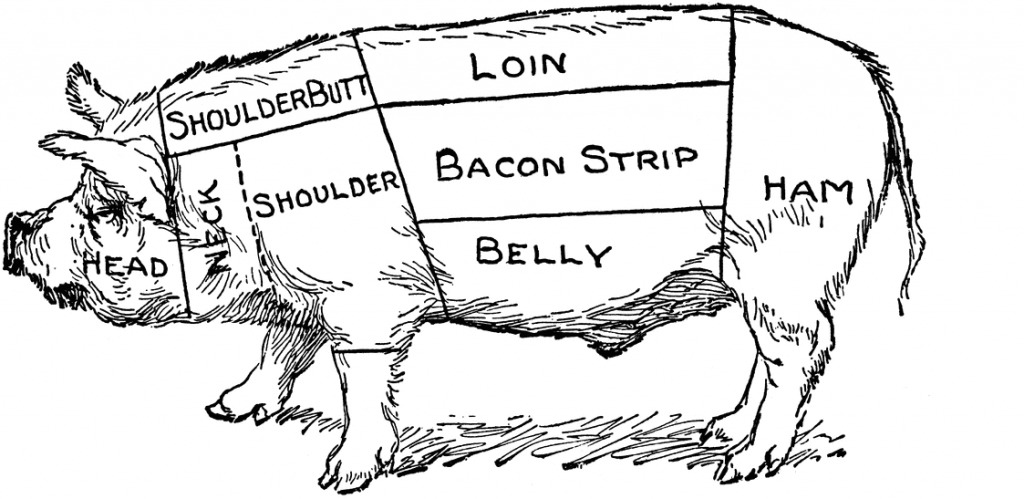
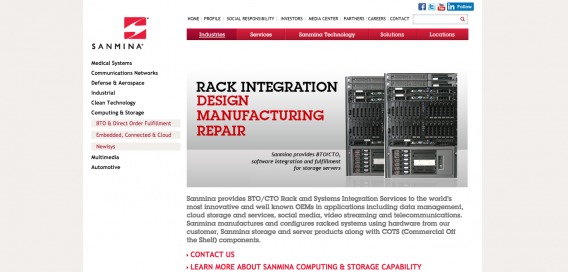
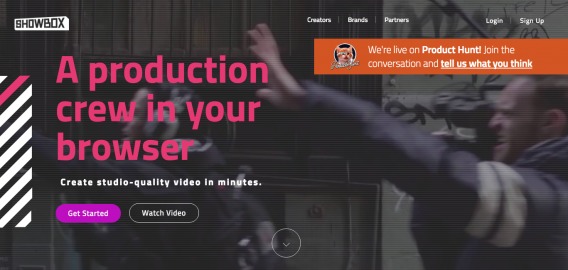
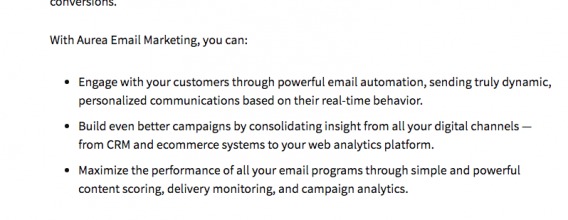
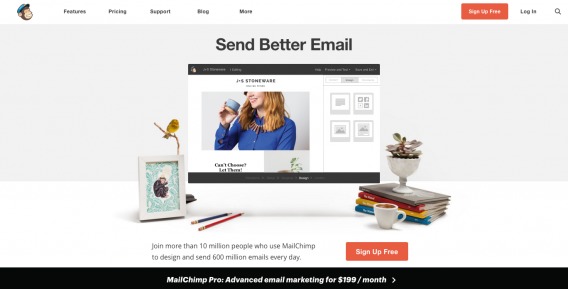
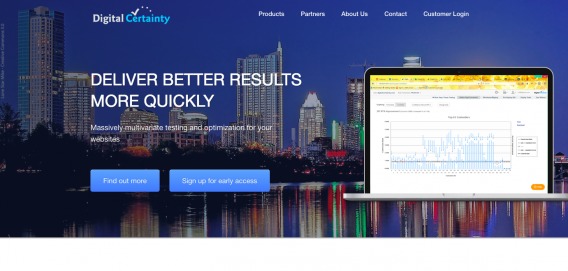
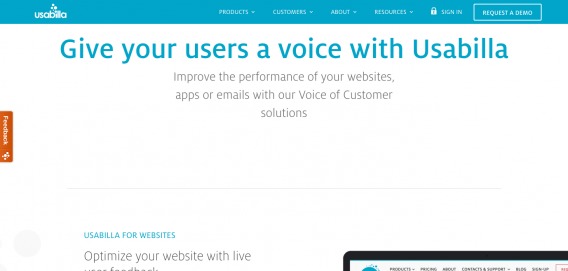
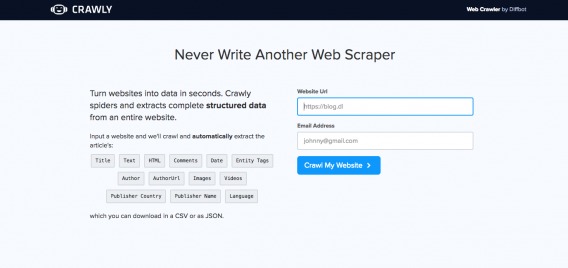
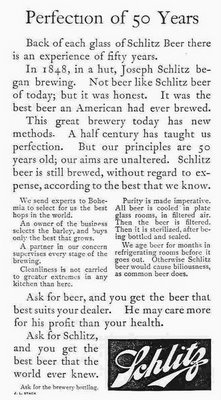
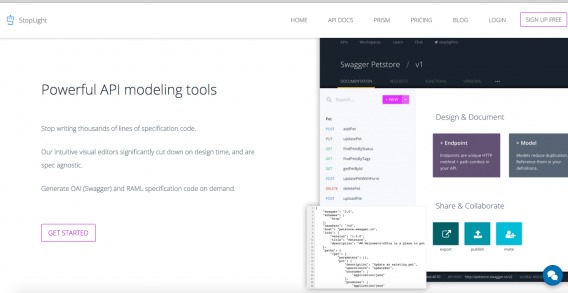
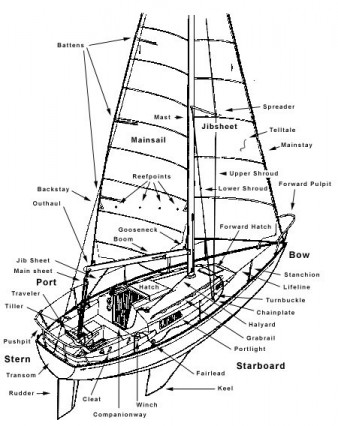
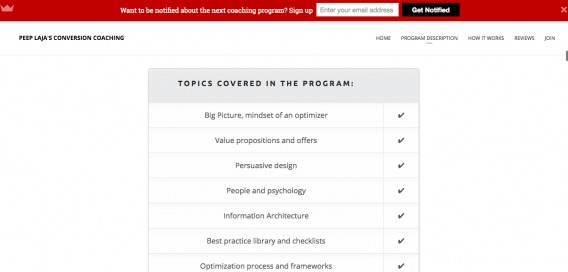


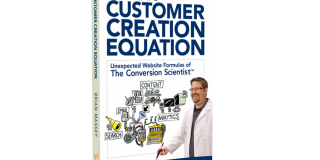
I have to confessed, I chuckled at Jakob Nielsen using the word “parse” in his sentence where he recommends using as simple language as possible. :)
This is a good breakdown of why you should always be writing in the language of your target market, not to the lowest common denominator.
Great post and thanks for sharing. In todays world it’s really one of the key success factors (at least in digital world) to make your customers actually to understand what they are buying.